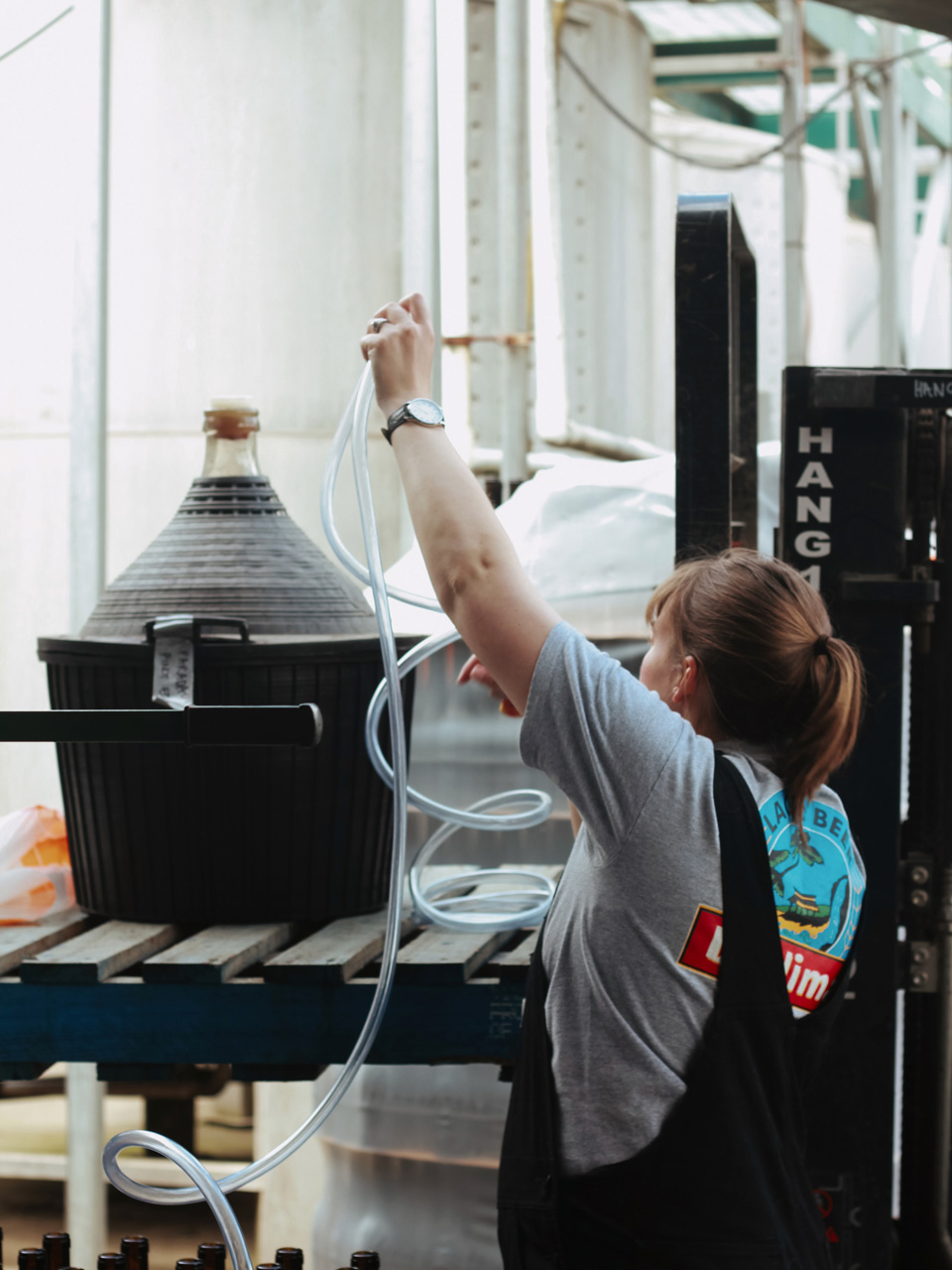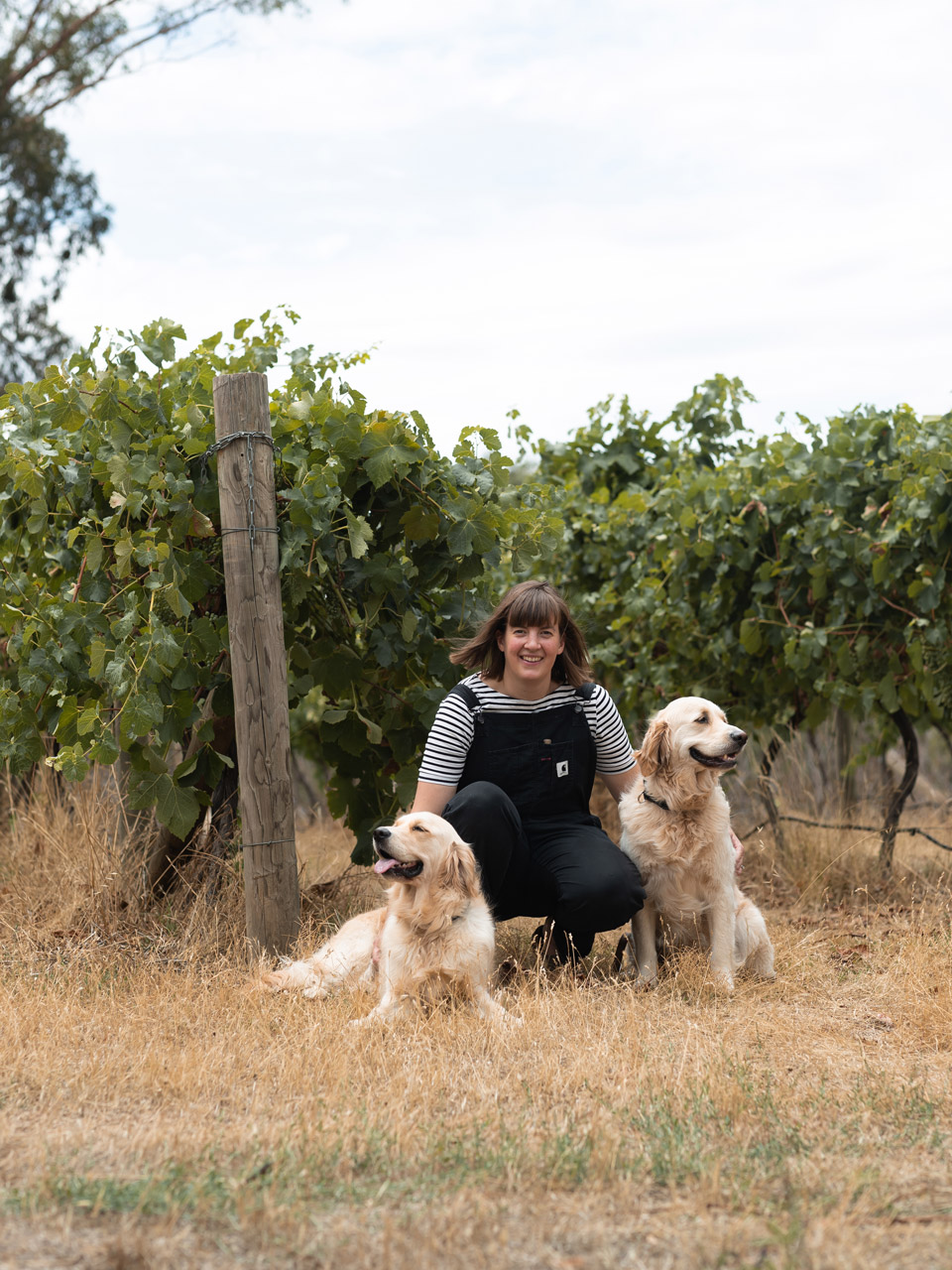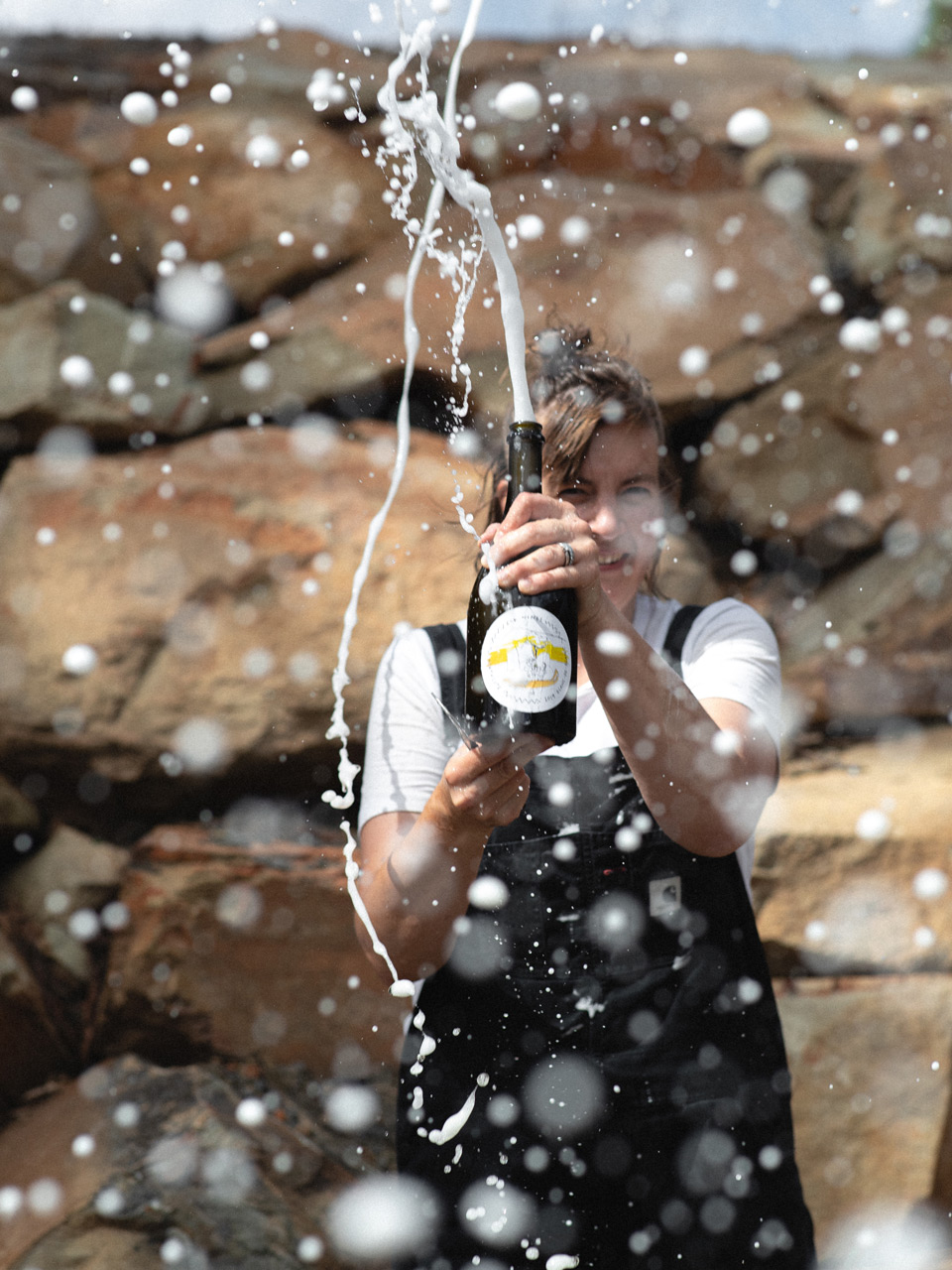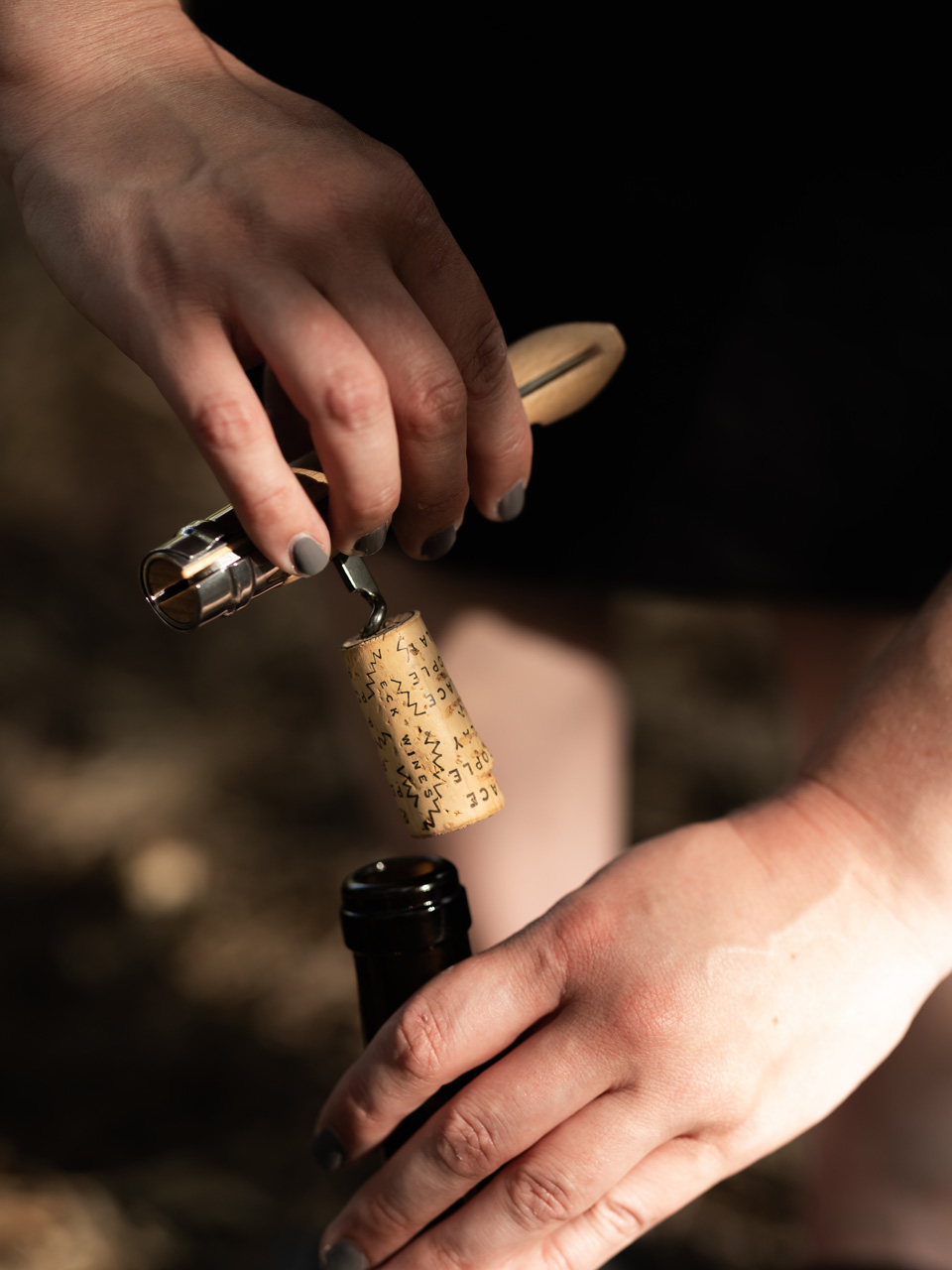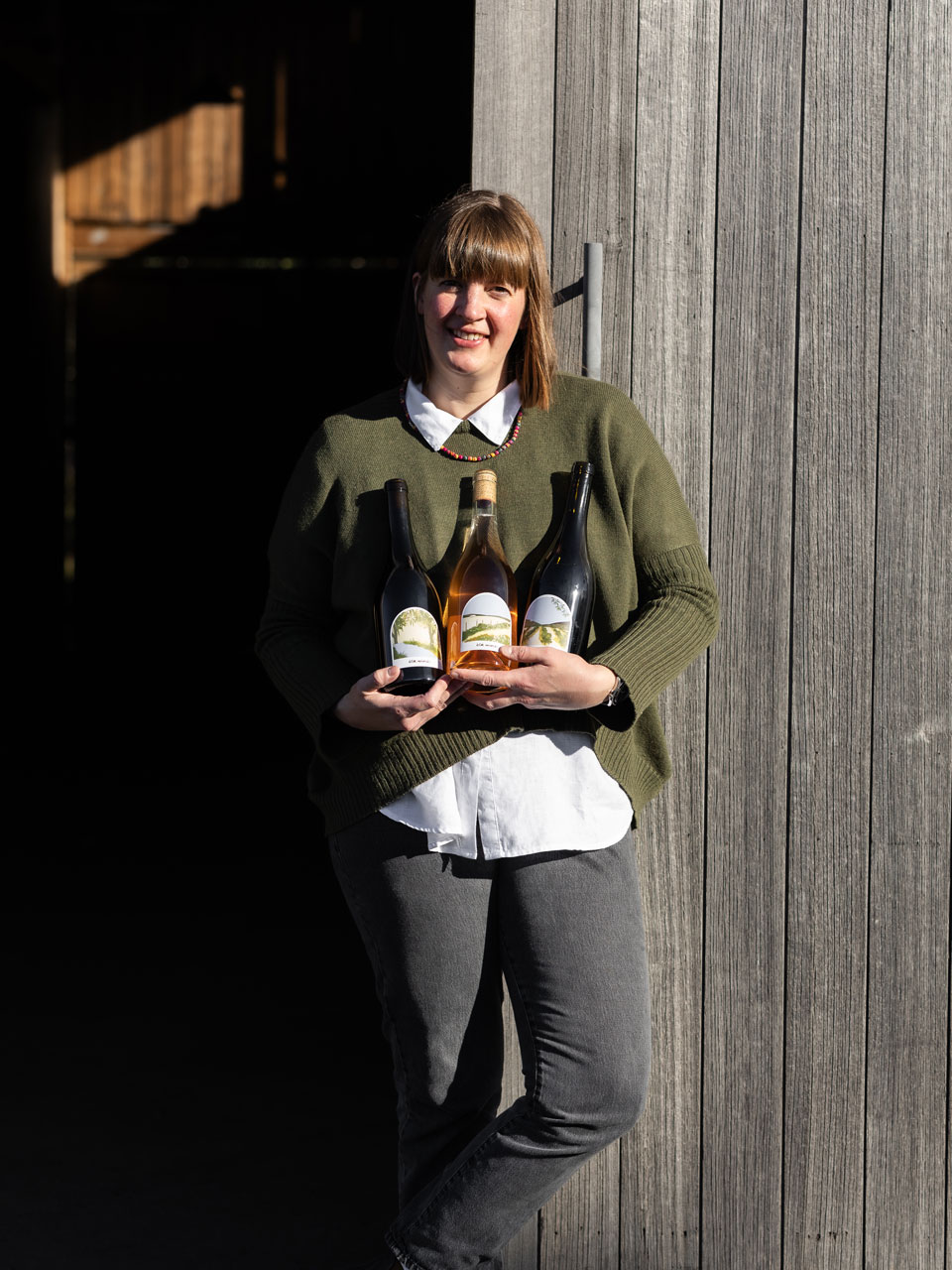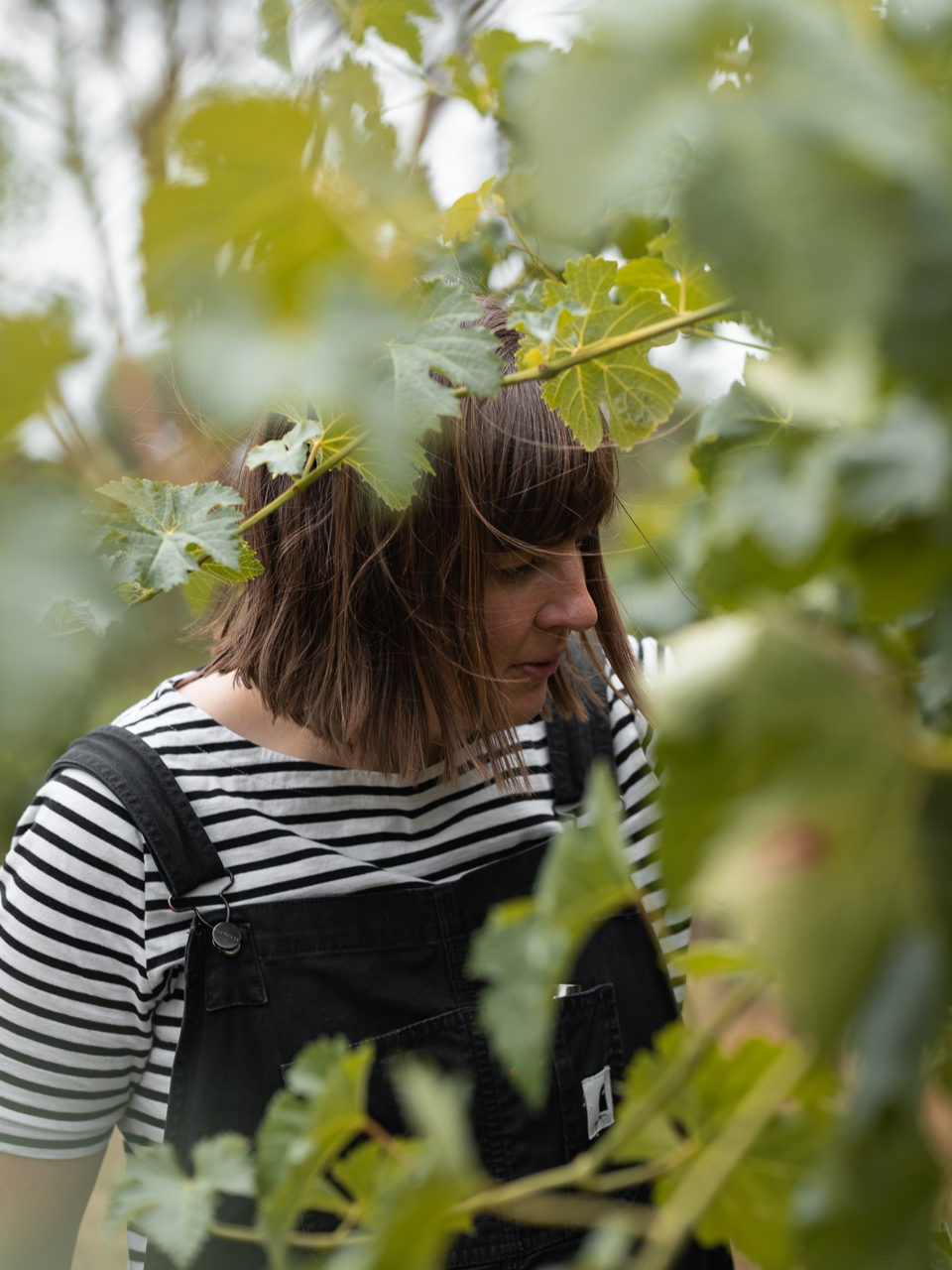Emily Kinsman’s ECK Wines is based out of her small vineyard and winery in central Heathcote, where she organically farms less than half a hectare of shiraz. That modest holding is supported by fruit – shiraz, chardonnay, pinot noir, marsanne, cabernet and riesling – sourced from across Heathcote and Mount Alexander, in the Bendigo region, with a greenfield site in Macedon recently purchased, which will soon be planted to vines. Originally a lawyer by trade, the pull of making something with her hands and a simpler, more connected life captivated Kinsman, and her wines follow that attraction, with a traditional approach, incorporating old, larger format oak and amphora, along with low sulphur additions and no fining or filtration.
“I have a deep desire to pursue a sustainable, nurturing life on the land,” says Kinsman. “One where work and life are balanced and healthy, operating in some sort of natural harmony. I have a compelling sense of the incredibly short time we are all here, and that I want to make a considered effort to do something that is of deep meaning to me and my little, growing family. I am working towards being able to live, raise my family and nurture our lives from the land and its produce, a throwback to a simpler life, with less material desires and more contentment from genuine, caring productivity.”
Kinsman started her career as a Collins Street Lawyer, ending up with a long commute after she moved to the country. “It wasn’t until I moved to the Macedon Ranges in 2016 that the idea of making a living from the land started to form,” she says. “I’ve always wanted to create, to make something. There is no greater pleasure to me than seeing or hearing someone enjoying something I made. During my school and university years I enjoyed making my own clothes. I also found inspiration in the creativity of cooking and the pleasure of hosting, sharing my creations with friends and family.”
“I make two styles of wines each year: my core wines and my regional wines. My core range aims to capture history, elegance, lineage and grace in a bottle. My regional range is my space to let my creative flair play with regionality, variety, technique and off-centre ideas to bring excitement and energy to the bottle.”
The law was traded in for grapes in 2019, taking on an assistant winemaker role at Hanging Rock Winery. “At that time, I’d recently taken over a small vineyard in central Heathcote, on the northern banks of Lake Eppalock, where I grow shiraz, organically, while also working as a négociant producer under my ECK Wines label, sourcing fruit from an established network of central and western Victorian sites.”
That vineyard was bought in 2017, and aside from the small plot of shiraz, it came with an existing label, a modestly equipped winery shed, a homestead and a cellar door, along with some key relationships with growers. “For a little while, I made wine under the wine label that we purchased with the property. However, it quickly became apparent that I wanted to do something that I could place my own stamp on, something that was mine and reflected the love, hope and back-breaking labour. So, in late 2019, I launched ECK Wines. ‘ECK’ are my initials, so it very much feels mine.”
The first release under the ECK banner was a non-vintage blend, the ‘hECK Home Blend’. That wine continues to be made, with the latest version consisting of tempranillo, pinot noir, shiraz and a rosé, blended in equal parts. The rest of the range expands across familiar varieties, with shiraz in various guises, including sparkling, pinot noir, chardonnay, cabernet and riesling, along with a rosé. All the wines are made by Kinsman at the Hanging Rock Winery.
“Each year, despite the progress we have made, we feel as though we know less. I suppose this is the way when working with mother nature, just as you feel as though you have harnessed her power, you are bumped in a different direction.”
“I make two styles of wines each year: my core wines and my regional wines,” says Kinsman. “My core range aims to capture history, elegance, lineage and grace in a bottle. My regional range is my space to let my creative flair play with regionality, variety, technique and off-centre ideas to bring excitement and energy to the bottle. My hope is always that my releases create a sense of anticipation, that the last taste was good enough to excite the drinker, to anticipate the next chapter – it’s my life’s journey; I hope people might enjoy joining me for the ride.”
Aside from the on-the-job learnings at Hanging Rock, Kinsman says that she has no formal winemaking education. “I learn by doing and through experience, asking questions and seeking guidance from others. This makes it challenging, but being a little naïve and not knowing sometimes means that I can be a little more experimental and not be bound or stuck in the way things should be done – not having to follow traditional winemaking techniques, so to speak, while still producing high-quality wine.”
On the home vineyard, Kinsman has instituted organic practices and changed the pruning from spur to cane, a combination that she believes has increased fruit quality twofold. She also notes there is a “delicacy” of expression that is uncommon in Heathcote.
“Each year, despite the progress we have made, we feel as though we know less. I suppose this is the way when working with mother nature, just as you feel as though you have harnessed her power, you are bumped in a different direction. This inspires me and it is clear to me that the pursuit of quality, dare I say perfection, is a near impossibility, but the effort in trying and improving is a deeply rewarding adventure.”
That adventure is an all-consuming one, says Kinsman. “It has been a proper hustle to get to where we are now, and by no means have we made it, but we have made some progress on our journey. I live and breathe this business with my husband, who runs his own small business in an unrelated industry. Wine occupies all our spare time, but we don’t mind – it feels like a noble pursuit to us.”
In the search of harmony, Kinsman says that she has moved away from barriques in favour of puncheons, seeking better neutral oak integration. “I have also acquired and continue to increase the volume of terracotta amphorae I use to both ferment and age wines. This gives me flexibility in still oxygenating my wines without adding any oak influence. I have also noticed a beautiful mineral purity from the wines that have spent time in amphorae, which is incredibly exciting, and I look forward to adding more terracotta pots, as well as some concrete vessels in the near future.”
The wines are also not fined or filtered, rather they are naturally settled and racked by gravity. “I find this preserves the subtle nuances and finesse in the wine that can get lost in the process of machine-based filtration,” Kinsman says, “I use sulphur sensibly; the whole no sulphur thing is great if you can do it, but it can also lead to significant wastage of both materials and effort and human endeavour. …I will always be led by my wines’ drinkability and capacity to age.”
The ECK range is also due for long-term expansion, with a 40-hectare property recently purchased in the Macedon Ranges. “Currently, it is a blank canvas in terms of both viticulture and winemaking,” says Kinsman. “If I can sell a little more wine each year – a lot more! – we will invest in the construction of a significantly larger winery and storage facility. We also have the ability to plant approximately 25 acres of vines on a beautiful north-westerly slope – located approximately 15 minutes from Kyneton, this breathtaking and beautiful site borders the Cobaw Ranges.”
Additionally, the soil on an easterly slope in the Heathcote property is being prepared for a 1.6-hectare block of Bordeaux varieties. It’s long term thinking, but Kinsman is in no doubt that the challenges will just keep coming. “When you’re constantly trying to improve your wines each year, learn from your mistakes and make positive steps forward, it can be hard to define success. I’m just happy with the progress I’ve made and where my wines are today, noting that I want next year’s wines to be even better. It is only when someone taps me on my shoulder, be it a sommelier at a restaurant, bottleshop owner or someone at my local farmer’s market, and says, ‘hey, this is delicious,’ that I might ever consider thinking that maybe I’m not doing too bad!”

